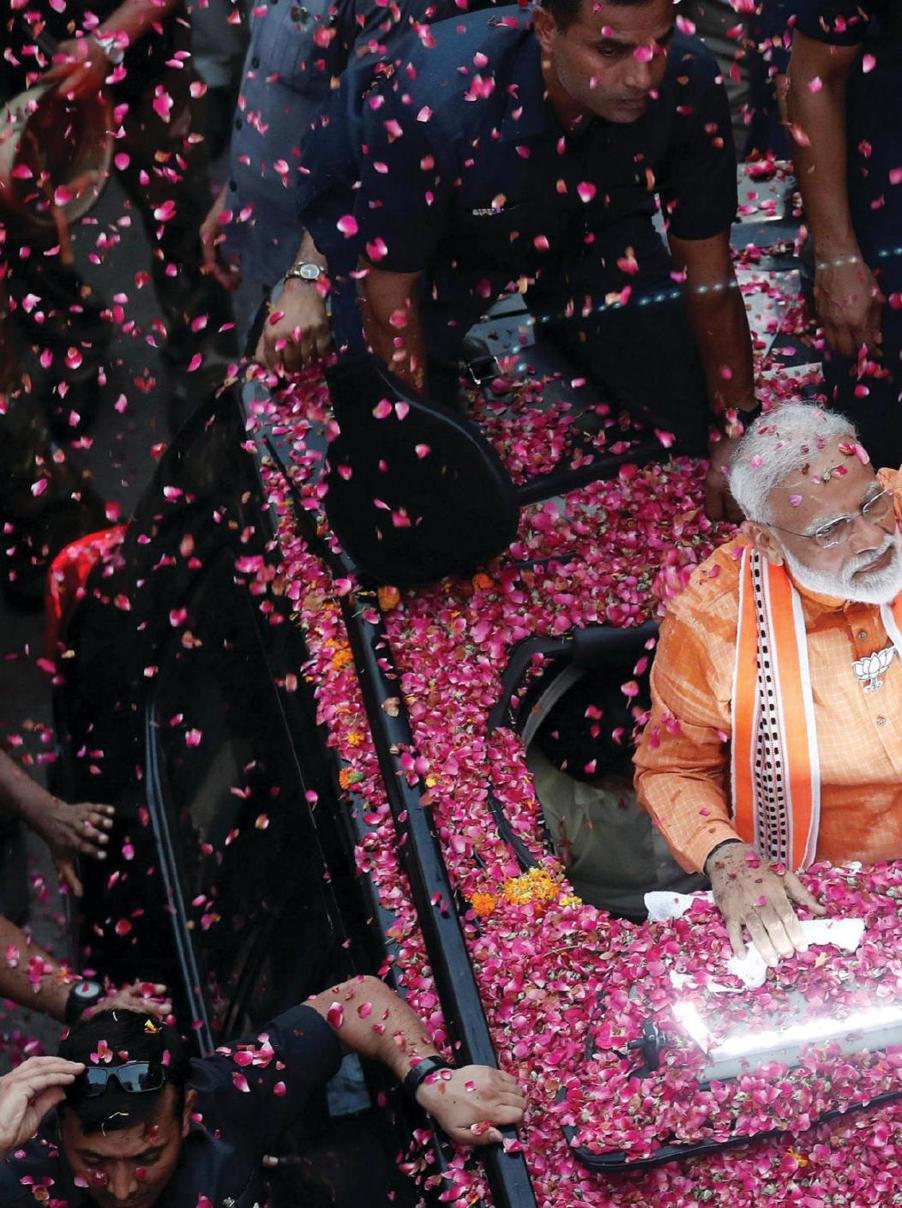The Modi Era

Of the great democracies to fall to populism, India was the first. In 2014, Narendra Modi, then the longtime chief minister of the western state of Gujarat and leader of the Hindu nationalist Bharatiya Janata Party (BJP), was elected to power by the greatest mandate the country had seen in 30 years. India until then had been ruled primarily by one party—the Congress, the party of Indira Gandhi and Jawaharlal Nehru—for 54 of the 67 years that the country had been free.
Now, India is voting to determine if Modi and the BJP will continue to control its destiny. It is a massive seven-phase exercise spread over 5½ weeks in which the largest electorate on earth—some 900 million—goes to the polls. To understand the deeper promptings of this enormous expression of franchise—not just the politics, but the underlying cultural fissures—we need to go back to the first season of the Modi story. It is only then that we can see why the advent of Modi is at once an inevitability and a calamity for India. The country offers a unique glimpse into both the validity and the fantasy of populism. It forces us to reckon with how in India, as well as in societies as far apart as Turkey and Brazil, Britain and the U.S., populism has given voice to a sense of grievance among majorities that is too widespread to be ignored, while at the same time bringing into being a world that is neither more just, nor more appealing.
The story starts at independence. In 1947, British India was split in two. Pakistan was founded as a homeland for Indian Muslims. But India, under the leadership of its Cambridge-educated Prime Minister, Jawaharlal Nehru, chose not to be symmetrically Hindu. The country had a substantial Muslim population (then around 35 million, now more than 172 million), and the ideology Nehru bequeathed to the newly independent nation was secularism. This secularism was more than merely a separation between religion and state; in India, it means the equal treatment of
You’re reading a preview, subscribe to read more.
Start your free 30 days





